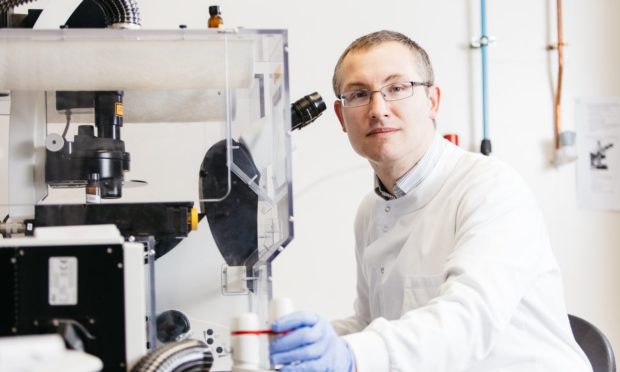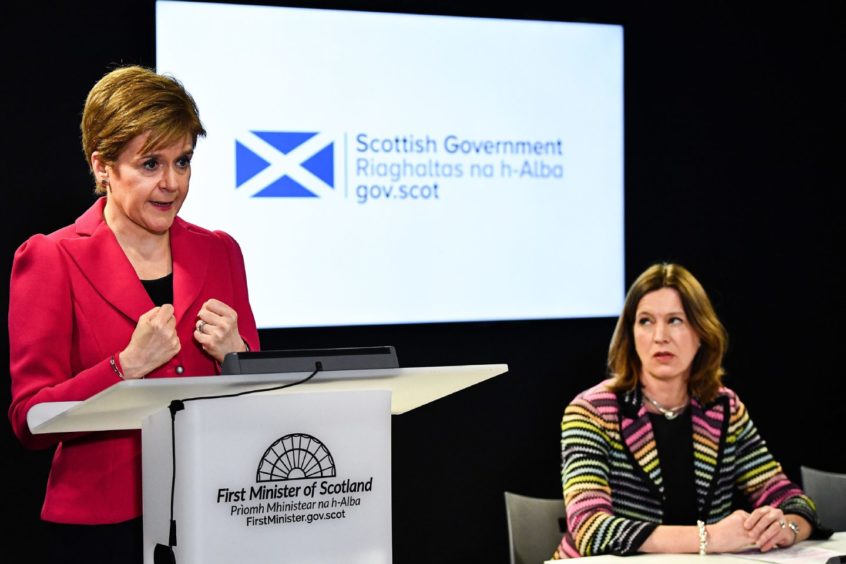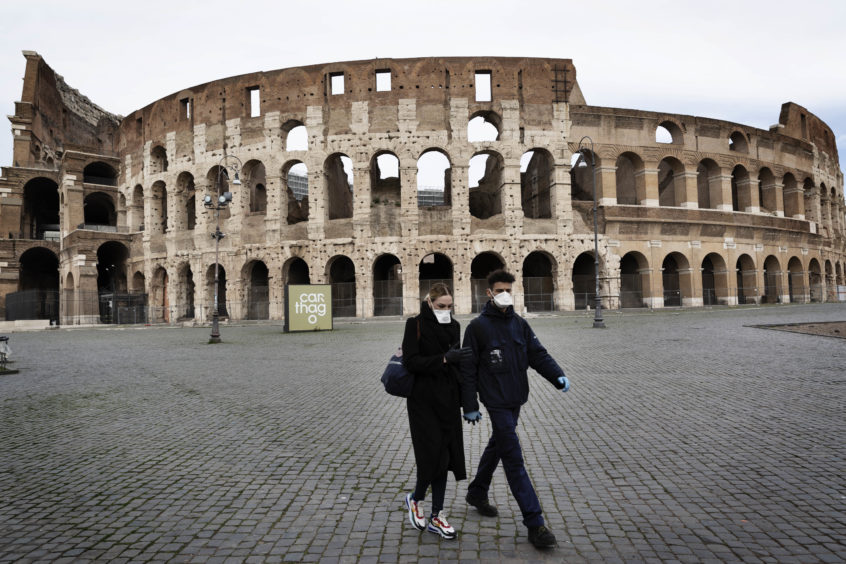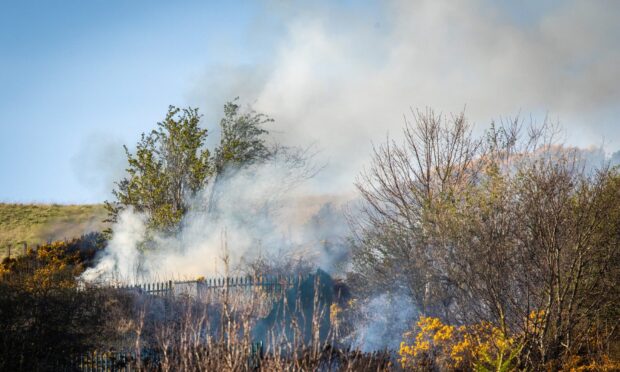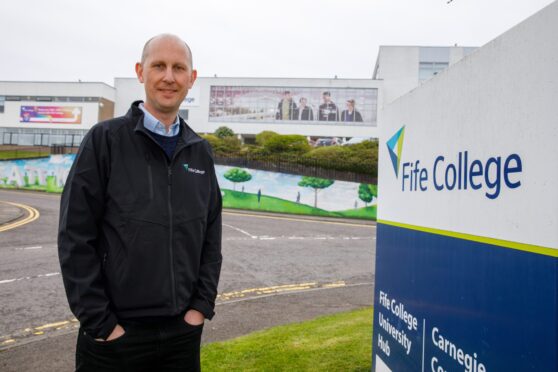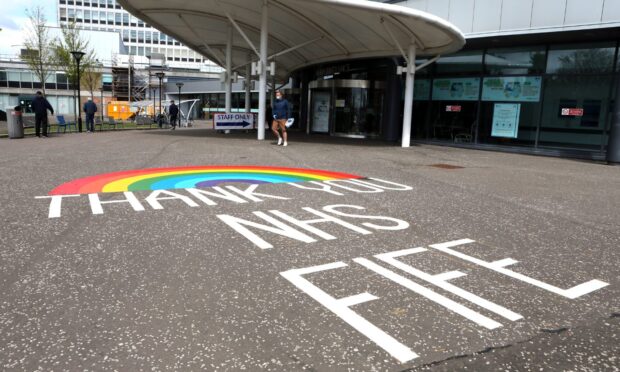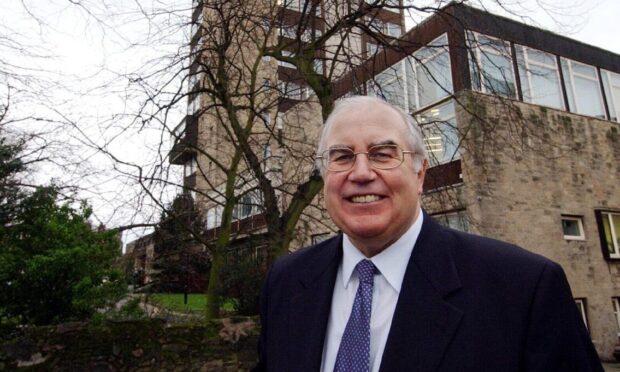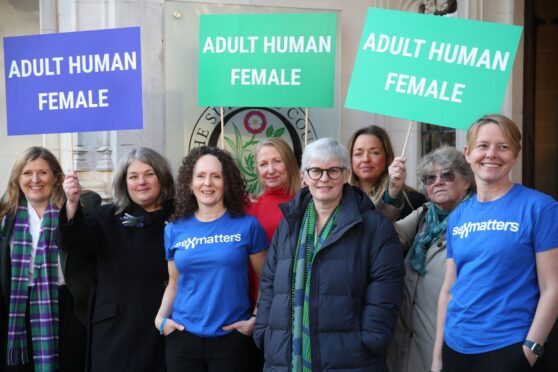Coronavirus cases have topped 145,000 globally, with people across the world facing major changes to their daily lives in the weeks and months ahead as countries grapple to get a hold on the pandemic.
With cases rising and evidence of community transmission within the UK and both the Scottish and UK governments introducing new guidance in a bid to delay the spread of the virus, we spoke to Professor James Chalmers, consultant respiratory physician at NHS Tayside and chair of respiratory research at the British Lung Foundation, on the implications of the outbreak.
He was keen to share advice and reassurance with people with pre-existing health conditions – a group he believes are not always receiving the information they need.
How worried should people with pre-existing health conditions be?
“One of the most dangerous parts of this whole thing is that people really start panicking about it and we see people with health conditions essentially getting a worsening of their condition because they’re so worried about this or taking unnecessary medication.
“It is a serious situation. Data from China and Italy and other countries where there are a lot of cases show the most severe cases are with people with underlying health conditions like lung disease, heart disease and diabetes, so those patients are at higher risk of having severe infections if they protract COVID-19 and therefore potentially dying from it.
A lot of the patients with lung conditions are getting the message that if you get this, you’re going to die and that is absolutely not the case.”
“But the vast majority of those people, even with those conditions, will recover fully and that’s a message that hasn’t got through to the public so far.
“A lot of the patients with lung conditions are getting the message that if you get this, you’re going to die and that is absolutely not the case.
“The health service is preparing for this and we do have a strategy for dealing with this and we will get through this.”
Do you have any practical advice for those with pre-existing health conditions?
“My advice to people with chest conditions has been a little bit more cautious than the advice that is being given to the general population and that’s because they’re at slightly more risk.
“I’ve been saying to my patients most importantly to keep up with the usual treatment for their chest conditions so that you’re in the best position you can be in should you get coronavirus.
#Coronavirus can affect your lungs and airways.
But how do the #lungs work❓
Check out our handy guide that covers all you need to know. https://t.co/vwbPJeKxfD pic.twitter.com/iNjeljZjxT
— British Lung Foundation (@lunguk) March 13, 2020
“I’ve been asking patients to make sure that people with viral infections don’t come and see them. So if they’ve got grandchildren who’ve got runny noses don’t allow them to come and visit you at this time. That’s because of the risk of infection.
“I’ve been asking them to limit travel to absolutely essential travel. So don’t go abroad, don’t go on a cruise, those sort of things and don’t go to large public events.”
What is the rationale behind the government’s current strategy?
“We’re into the phase of the infection now where we’re trying to delay the peak. We’re not going to be able to stop the UK having an outbreak of coronavirus; it is going to spread in the population.
“What we’re trying to do is to spread out the number of cases over time so the hospital doesn’t get flooded with hundreds of cases in a very short period of time.
“By asking people with even mild symptoms to stay at home, they’re not going to go out and infect another half a dozen people so you don’t get the exponential growth in infection and that slows down the spread of the virus which means the health service can cope with it.
“That’s also the rationale behind advising if there’s somebody in the household who has got symptoms that could be related to coronavirus to ask the family to self-isolate because they could also be carrying the virus.
“These are sensible, not panicking measures to try and slow down how quickly it spreads in the population.”
Do you feel the health service is prepared, or as prepared as it can be, for this?
“We have known this is coming. The health service is doing everything it possibly can to be ready for this.
“The thing that we don’t know is how many cases are going to come and how quickly the rate is going to rise.
“At the moment, we’re not in an Italian situation where the health service was overwhelmed with just too many patients for the number of beds.
“That could happen so we need to prepare in terms of having the capacity, having the staff ready, activating additional hospital beds, so that we can deal with this when it comes.
“That’s what we’re doing at the moment, that is what we’re spending all day and all night doing, preparing for the inevitable increase in cases.”
Will doctors, nurses and medical staff still get holidays?
“At the moment, it hasn’t been suspended. So medical staff are being asked to cover the potential coronavirus surgery and to do that within their working contracts so they would have holidays as normal and work normal hours.
“That may change but at the moment there is no obvious reason to cancel people’s holidays.
“People need a rest as well, even when it comes to the number of cases going up, it’s important to not over work health professionals.”
Are doctors concerned about being exposed to this virus?
“Of course, it enters people’s minds but if you think of a normal day where coronavirus is not an issue, as a respiratory physician you go and see patients that have influenza, you go and see patients that have pneumonia due to infection. I go and visit patients that have tuberculosis.
“This is absolutely not the first infectious disease that we have encountered and so we’re very experienced at practising good hygiene and infection control procedures and that’s what we’re going to have to do with patients with coronavirus.”
Do you agree with the approach the government has taken so far?
“I think we have to trust the science and trust the people advising the government and it will be different for different places. So in Scotland at the moment the number of cases is some what lower than it is in some parts of the country.
There’s a knock-on effect to closing schools which needs to be considered.”
“I’ve heard in London, for example, some schools have taken the decision to close and that may be absolutely reasonable for that area based on the number of cases they have and the perceived risk. In some cases that’s not the case.
“We do have to take a balanced approach because if you shut schools then somebody has to look after the children and that may be a family where both of the parents are NHS nurses.
“There’s a knock-on effect to closing schools which needs to be considered.”
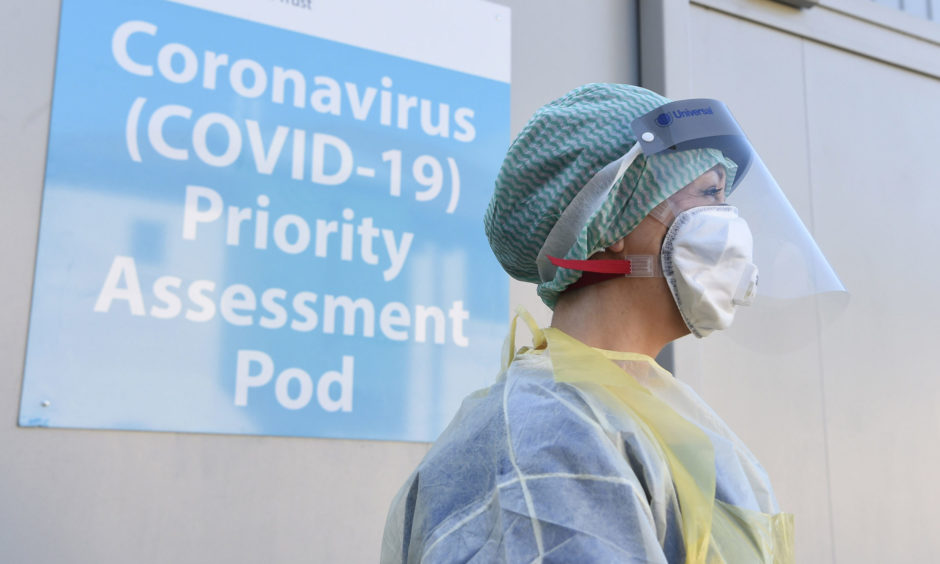
It feels like the situation has accelerated here in the last few days. Is it right that people have a sense of panic?
“Panic is not going to get us anywhere. Things have ramped up in the last 48 hours because the number of cases has increased.
“We were trundling along with relatively few cases in the UK, 40 to 50 cases, and now we’ve increased the number of cases so we’re on an upward trajectory and it’s absolutely right at this point that we start to take measures and think about what happens when the numbers become larger.
You’re not just looking after yourself for yourself but thinking about the effect you will have on the rest of society.
“Part of that is making the public aware to be taking steps to protect themselves and protect other people.
“I don’t want people to be panicked but I do want people to take it seriously because you still see people saying this is just like the flu, I’m not going to bother about this and that’s wrong.
“Even if you’re a fit 30-year-old and think I’m not going to bother with this if I get it I’ll be fine, the point is you could pass it onto an 80-year-old patient who has a lung condition.
“You’re not just looking after yourself for yourself but thinking about the effect you will have on the rest of society.”
Is coronavirus in any way like the flu?
“The flu is a serious thing so I think comparisons with the flu are dangerous as I worry in the future people will say ‘oh the flu, it’s nothing like the coronavirus’. The flu is important and has a major effect on the healthcare system every year.
“The latest estimates are that this is a bit more dangerous than the flu in terms of the case fatality rate and it certainly spread very rapidly. It probably won’t be until after the outbreak that we really know what the true case fatality rate was and how infectious it was because it evolved so quickly that the data is very patchy.
“I think we’ve done absolutely the right thing in treating this as serious, or more serious, than the flu.”
Is it more infectious?
“I don’t think we’ll know until after the outbreak and once all the data is collated to say whether it is truly more infectious than the flu.
“The latest data that is out there and is published shows that, yes, it spreads more quickly than the flu but the difference is modest. When people ask me this question I say it’s a ‘little bit’ more serious than the flu.
“The development of a vaccine takes time so it’s very unlikely in the next few months that we will have a vaccine because of the time it takes to develop one and then do tests in humans.”
The death rate among confirmed cases in Italy is higher than the UK. As of March 13, the fatality rates among detected cases were 1.4% for the UK and 6.7% for Italy. What is the reason for this in your opinion?
“The Italian cases had their first cases on the same day the UK had their first cases but then it was about 20 days before the Italians then had their next set of cases and they ramped up really fast.
“They went from having 14 cases to having 200, 500, 1,000 over a few days.
“I think what happened in Italy was that there was infection already spreading within the population. Containment completely failed as they didn’t identify the initial people infected and that they were infecting others so they got a very rapid boost in cases.
“That is a big problem in an outbreak situation if it’s spreading in the population before anyone can get out there and try and control it.
There’s no sugar coating it – that’s a cause for concern and that’s why additional steps to halt the spread have been introduced.
“Whereas in the UK we’ve been identifying the cases, contact tracing which is asking who they’ve been in contact with, testing them, isolating them and therefore slowing down how quickly it spreads in the community and I think that was unsuccessful in Italy.”
The Health Secretary has said there have been cases of community transmission in Scotland. When that becomes more sustained, is that when we should be more concerned?
“That is really why the First Minister and the Prime Minister made their statements to move to move into the delay phase because now there is sustained transmission within the community and it’s happening enough that we won’t be able to find every case and isolate every case.
“That’s why we have moved to the next stage and that’s why we want to delay how quickly it moves through the population.
“There’s no sugar coating it – that’s a cause for concern and that’s why additional steps to halt the spread have been introduced.”
